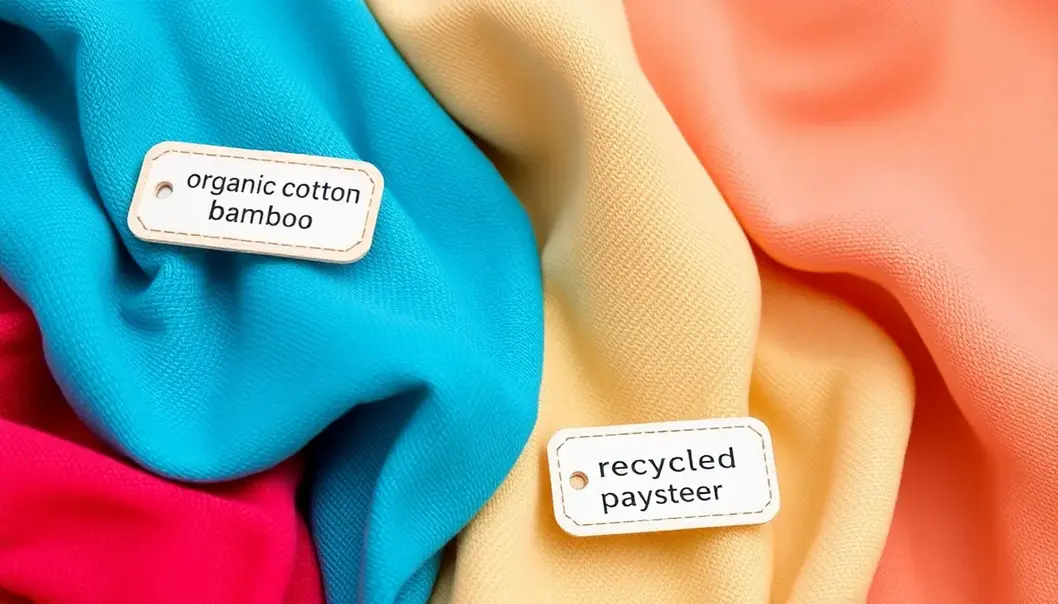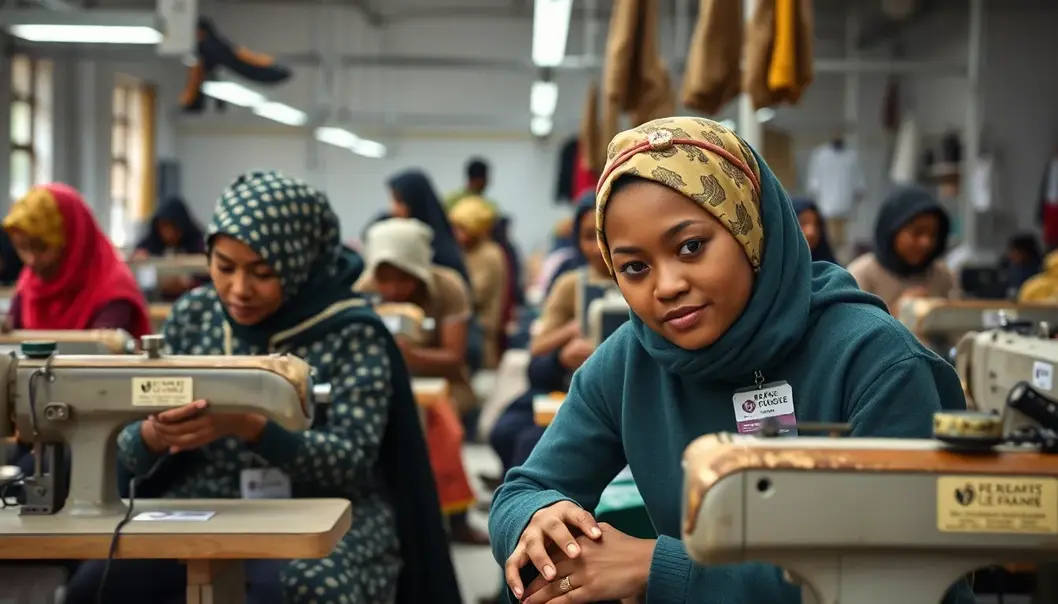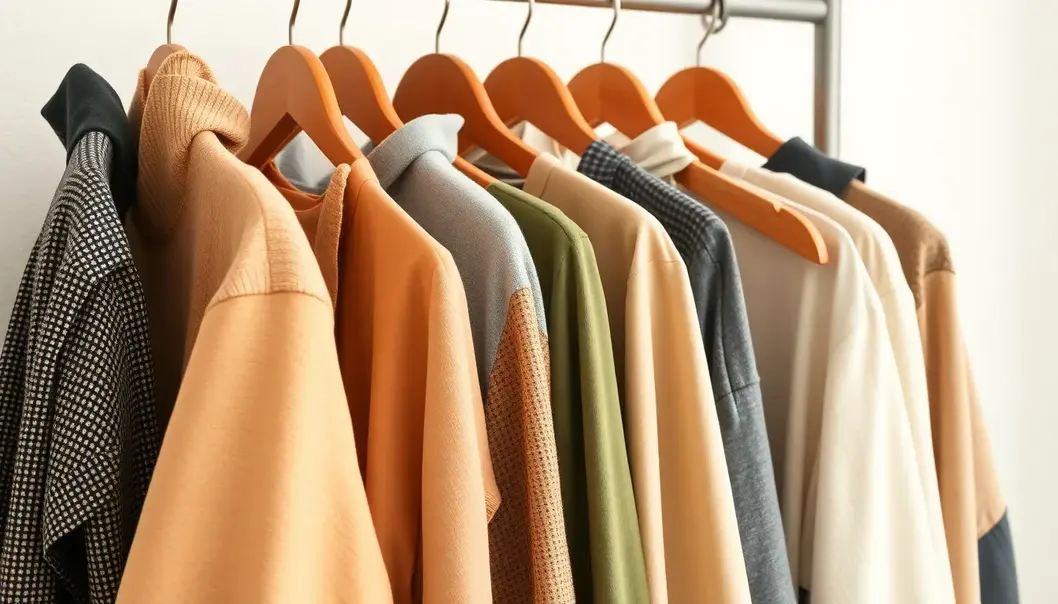Sustainable fashion isn’t just a trend—it’s a pivotal shift towards an eco-friendly lifestyle. For those who are environmentally conscious, redefining your wardrobe with mindful purchases can significantly impact the planet. This movement is about more than clothing; it’s about ethical practices, materials that respect nature, and a commitment to reducing waste and pollution. As consumers awaken to the environmental footprint of fashion, adopting sustainable choices can drive change. Explore how you can be part of this revolutionary path towards a greener, more sustainable future that’s fashionable and responsible.
Understanding Sustainable Materials

In the quest for a more sustainable wardrobe, the choice of materials plays a pivotal role in minimizing environmental impact. Eco-friendly fabrics like organic cotton, bamboo, and recycled polyester are at the forefront of this movement, each offering distinct advantages toward reducing our ecological footprint.
Organic cotton is grown without synthetic fertilizers or harmful pesticides, reducing soil degradation and water pollution. This method not only creates a healthier working environment for farmers but also ensures that the final fabric is free from chemical residues. Additionally, organic cotton uses less water compared to its conventional counterpart, thus conserving this vital resource.
Bamboo fabric is a rising star in sustainable textiles due to its rapid growth and minimal need for agricultural chemicals. Bamboo plants absorb more carbon dioxide than many trees, making them an excellent choice for mitigating greenhouse gases. The production of bamboo fabric uses a closed-loop process, meaning that the chemicals used in processing are recycled, reducing environmental harm.
Recycled polyester offers another sustainable option. By repurposing plastic waste, such as bottles, into fabric, it prevents these materials from ending up in landfills or oceans. This process consumes less energy than creating new polyester from raw petroleum, making it a less resource-intensive alternative.
Numerous fashion brands are leveraging these materials, leading the charge towards a more sustainable industry. While choosing such products, it’s essential to look for certifications that authenticate their eco-friendly claims. Certifications like GOTS (Global Organic Textile Standard) for organic cotton, OEKO-TEX for safe textiles, and GRS (Global Recycled Standard) for recycled content can guide consumers in making informed choices.
The journey towards sustainability in fashion involves not just adopting these materials but also supporting brands committed to transparency and accountability. As you curate your green closet, consider the impact of your fabric choices not just on the aesthetic of your wardrobe but on the planet as a whole.
Ethical Fashion Practices

As consumers become more environmentally conscious, the demand for ethical fashion practices is growing. Ethical fashion encompasses a variety of principles including fair trade, labor rights, and transparency. These elements are crucial not only for protecting the welfare of workers but also for establishing consumer trust.
Fair trade ensures that the producers in developing countries receive a fair price for their work, thus supporting sustainable development and improving livelihoods. It prioritizes equitable trading conditions, promoting higher social and environmental standards. By choosing fair trade brands, consumers can contribute to positive economic impacts in these communities.
The labor rights aspect of ethical fashion highlights the importance of safe working conditions, fair wages, and the prohibition of child labor. The fashion industry has long been criticized for exploitative practices, but with a growing number of ethical brands, there is an opportunity to support companies prioritizing humane treatment of their workforce.
Transparency plays a critical role in building consumer confidence. Brands committed to ethical fashion are usually transparent about their supply chains, production processes, and sourcing of materials. This openness allows consumers to make informed decisions, enabling them to choose brands whose values align with their own ethical beliefs.
Consumers eager to support ethical fashion should seek out certifications that guarantee these practices. Certifications like Fair Trade Certified, Global Organic Textile Standard (GOTS), and others provide assurance that brands adhere to strict social and environmental criteria. By looking for these certifications, consumers can easily identify brands committed to ethical practices.
To aid in the search for ethical brands, consumers may visit platforms dedicated to showcasing companies with ethical credentials. Additionally, engaging with brands on social media and requesting information about their practices encourages them to maintain transparency and ethical consistency.
Supporting ethical fashion can also mean investing in initiatives that empower local artisans and circular fashion models, which emphasize reducing waste through recycling and prolonging the lifecycle of garments. This practice not only benefits the environment but also supports communities and fosters sustainability.
While identifying brands that align with ethical standards can sometimes seem daunting, the payoff is a more just and environmentally friendly fashion industry. As awareness grows, consumer support for ethical practices will be a pivotal force in shaping the future of fashion towards a more equitable and sustainable path.
Final words
Sustainable fashion offers a pathway to reduce your environmental footprint while supporting ethical practices. By choosing eco-friendly materials and favoring brands with transparent, fair practices, you can contribute to a healthier planet. Let sustainable fashion be your way of making a positive impact—one garment at a time.
Start transforming your wardrobe today with our sustainably sourced clothing collection. Embrace eco-friendly fashion now!
Learn more: https://example.com/sustainable-fashion
About us
Our company offers a curated collection of sustainable fashion, focusing on eco-friendly materials and ethical manufacturing processes. We believe in transparency and are committed to providing fashion that respects both people and the planet. Shop our range of sustainably sourced clothing and help reduce fashion’s environmental impact while supporting fair trade practices.



